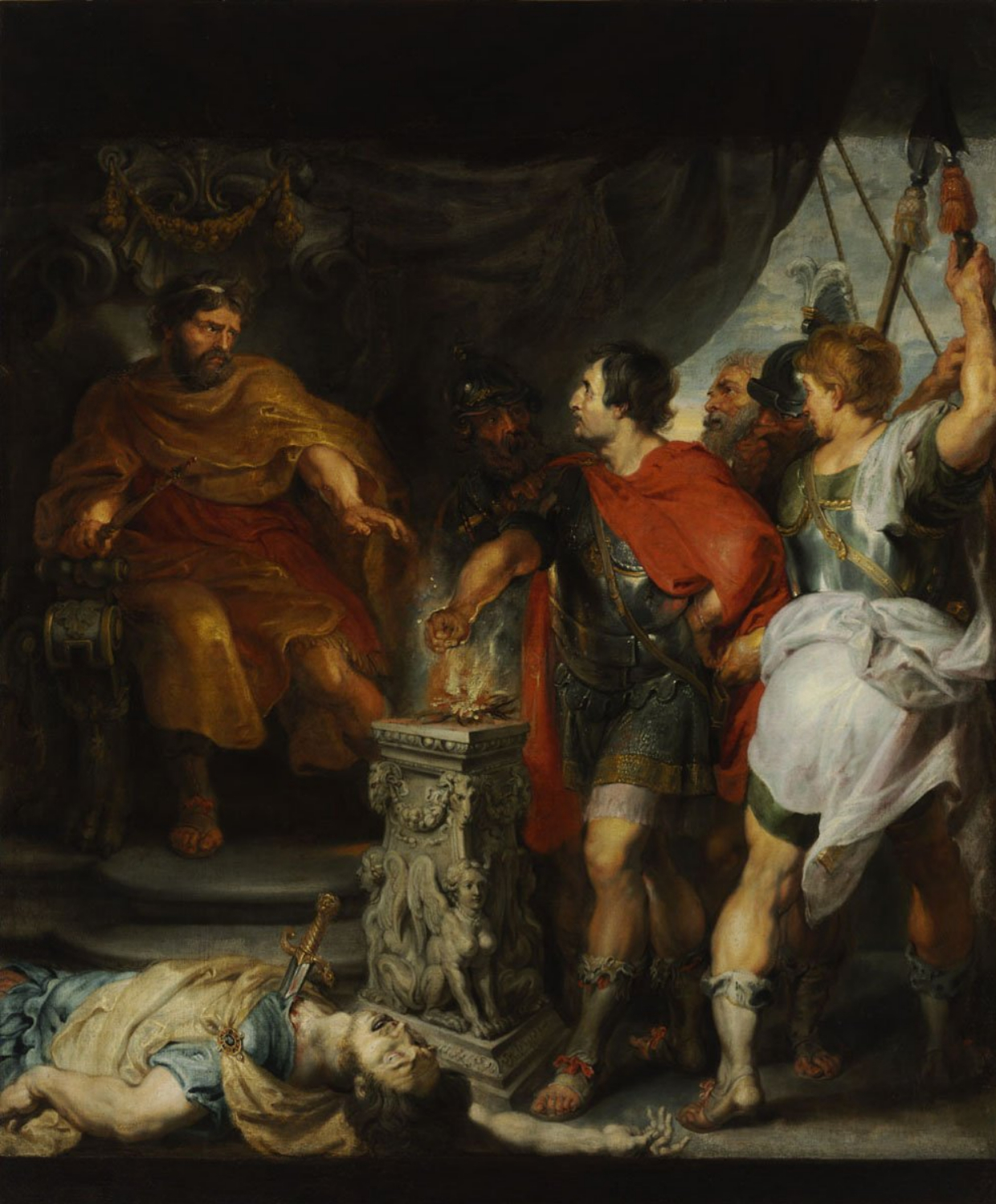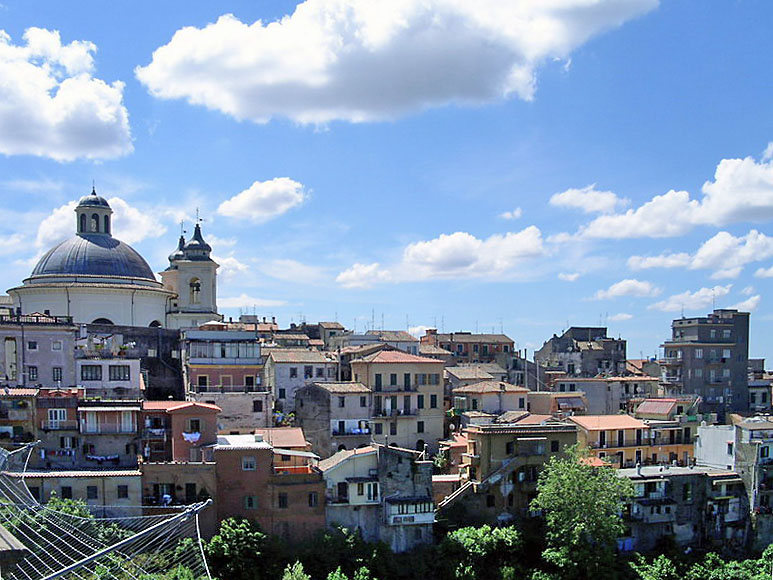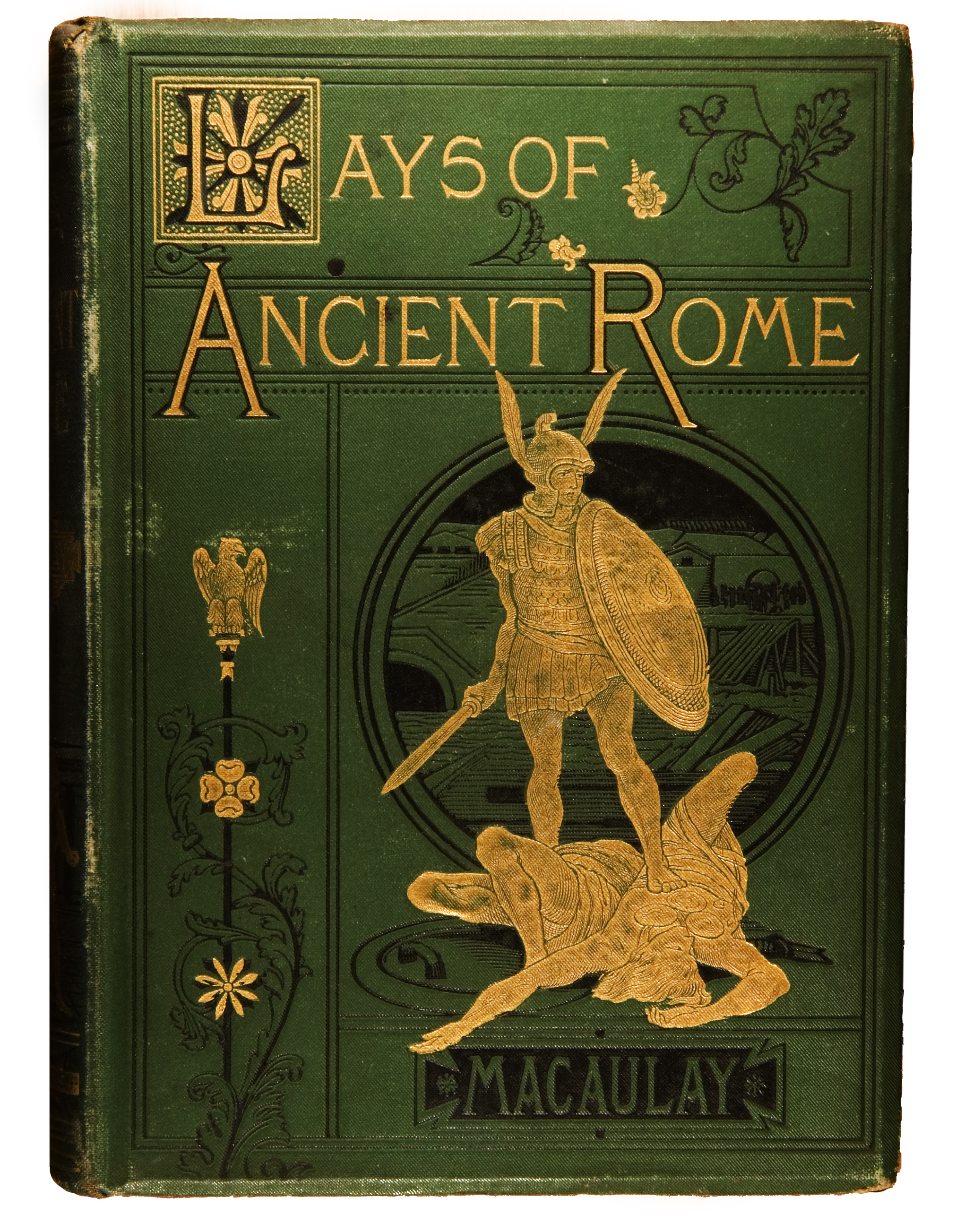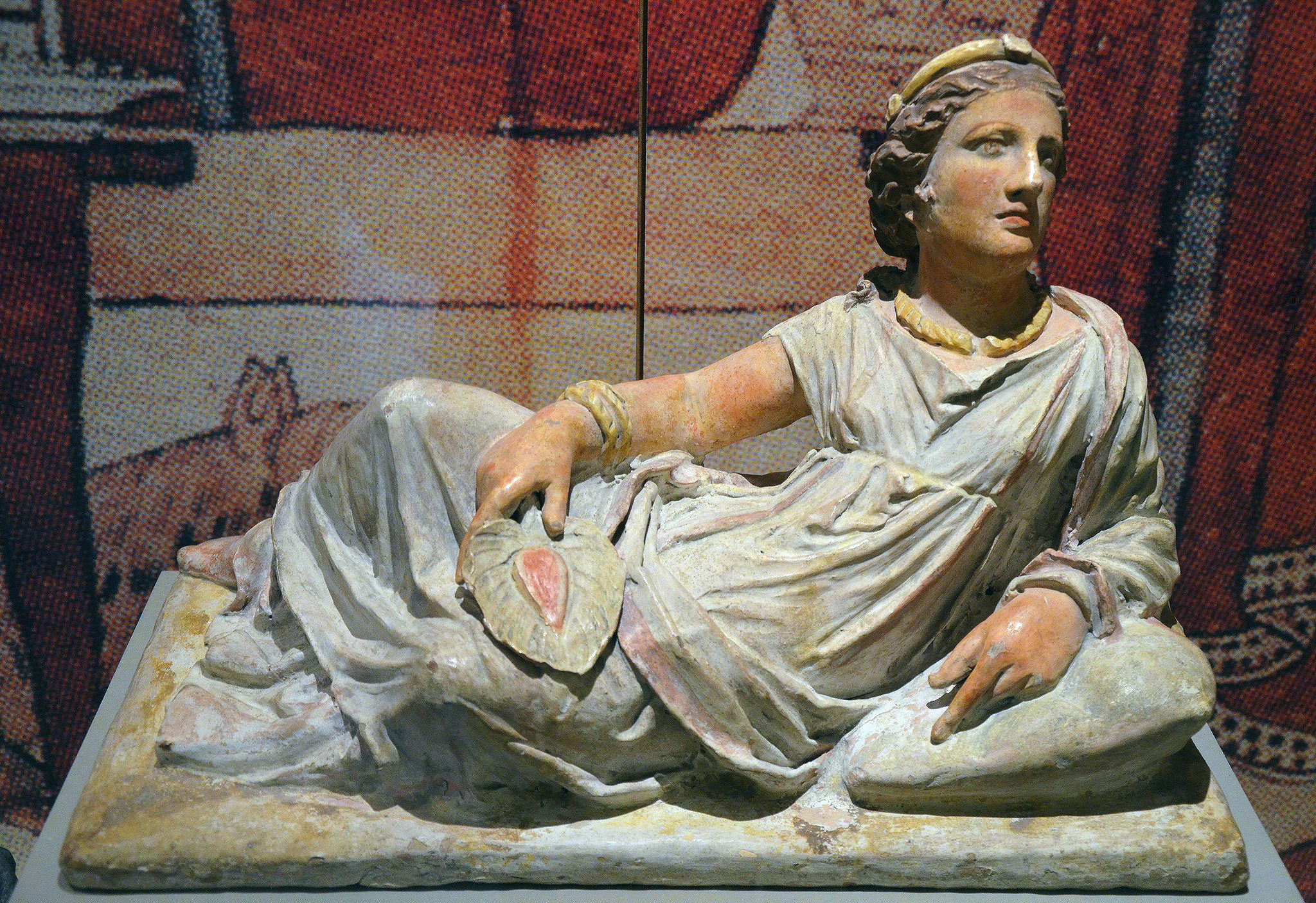|
Porsena
Lars Porsena (or Porsenna; Etruscan: ) was an Etruscan king (lar) known for his war against the city of Rome. He ruled over the city of Clusium (Etruscan: ; modern Chiusi). There are no established dates for his rule, but Roman sources often place the war at around 508 BC. War against Rome Lars Porsena came into conflict with Rome after the revolution that overthrew the monarchy there in 509 BC, resulting in the exile of the semi-legendary last king of Rome, Lucius Tarquinius Superbus. The deposed monarch, whose family was of Etruscan origin, tried and failed to retake the throne a number of times before appealing to Porsena for assistance, since at that time Clusium was said to be a very powerful Etruscan city.Livy, ''Ab urbe condita'', 2.9 At this point, however, the histories diverge. According to most mainstream Roman accounts, including Livy, Porsena attacked and besieged Rome, but was sufficiently impressed by particular acts of Roman bravery in defending the city that he ... [...More Info...] [...Related Items...] OR: [Wikipedia] [Google] [Baidu] |
Lars Porsena
Lars Porsena (or Porsenna; Etruscan: ) was an Etruscan king (lar) known for his war against the city of Rome. He ruled over the city of Clusium (Etruscan: ; modern Chiusi). There are no established dates for his rule, but Roman sources often place the war at around 508 BC. War against Rome Lars Porsena came into conflict with Rome after the revolution that overthrew the monarchy there in 509 BC, resulting in the exile of the semi-legendary last king of Rome, Lucius Tarquinius Superbus. The deposed monarch, whose family was of Etruscan origin, tried and failed to retake the throne a number of times before appealing to Porsena for assistance, since at that time Clusium was said to be a very powerful Etruscan city.Livy, '' Ab urbe condita'', 2.9 At this point, however, the histories diverge. According to most mainstream Roman accounts, including Livy, Porsena attacked and besieged Rome, but was sufficiently impressed by particular acts of Roman bravery in defending the city that ... [...More Info...] [...Related Items...] OR: [Wikipedia] [Google] [Baidu] |
Clusium
Clusium ( grc-gre, Κλύσιον, ''Klýsion'', or , ''Kloúsion''; Umbrian:''Camars'') was an ancient city in Italy, one of several found at the site. The current municipality of Chiusi (Tuscany) partly overlaps this Roman walled city. The Roman city remodeled an earlier Etruscan city, Clevsin, found in the territory of a prehistoric culture, possibly also Etruscan or proto-Etruscan. The site is located in northern central Italy on the west side of the Apennines. Location Chiusi is situated on a hill above the valley of the Clanis river near lake Clusium, both of which features had those names in antiquity. The Clanis is part of the Tiber drainage system and was navigable by boat from there. Rome was also accessed by the via Cassia, which was built over an Etruscan road. Etruscan history By the time it appears in Livy's ''History'', it is already a major Etruscan city being petitioned for assistance against the republican partisans of ancient Rome. About its life prior to that ... [...More Info...] [...Related Items...] OR: [Wikipedia] [Google] [Baidu] |
Mucius Scaevola Vor Porsenna Rubens Van Dyck
The gens Mucia was an ancient and noble patrician house at ancient Rome. The gens is first mentioned at the earliest period of the Republic, but in later times the family was known primarily by its plebeian branches. Origin The first of the Mucii to appear in history is Gaius Mucius Scaevola, a young man at the inception of the Roman Republic. According to legend, he volunteered to infiltrate the camp of Lars Porsena, the king of Clusium, who besieged Rome BC, and who may in fact have captured and held the city for some time. Mucius, armed with a dagger, attempted to assassinate Porsena, but unfamiliar with Etruscan dress, he mistook the king's secretary for the king, and was captured. Brought before the king, Mucius declared that he was but one of three hundred Roman men who had sworn to carry out this mission, or die in the attempt. As a show of bravery, it was said that he thrust his right hand into a brazier, and stood silently as it burned. Porsena was so impressed by ... [...More Info...] [...Related Items...] OR: [Wikipedia] [Google] [Baidu] |
Gaius Mucius Scaevola
Gaius Mucius Cordus, better known with his later cognomen Scaevola ( , ), was an ancient Roman youth, possibly mythical, famous for his bravery. In 508 BC, during the war between Rome and Clusium, the Clusian king Lars Porsena laid siege to Rome. Gaius Mucius Cordus, with the approval of the Roman Senate, sneaked into the Etruscan camp with the intent of murdering Porsena. Since it was the soldiers' pay day, there were two similarly dressed people, one of whom was the king, on a raised platform speaking to the troops. This caused Mucius to misidentify his target, and he killed Porsena's scribe by mistake. After being captured, he famously declared to Porsena: "I am Gaius Mucius, a citizen of Rome. I came here as an enemy to kill my enemy, and I am as ready to die as I am to kill. We Romans act bravely and, when adversity strikes, we suffer bravely." He also declared that he was the first of three hundred Roman youths to volunteer for the task of assassinating Porsena at the risk ... [...More Info...] [...Related Items...] OR: [Wikipedia] [Google] [Baidu] |
Cloelia
Cloelia ( grc, Κλοιλία) was a legendary woman from the early history of ancient Rome. Biography She was one of the women taken hostage by Lars Porsena, as a part of the peace treaty which ended the war between Rome and Clusium in 508 BC. There are two different stories explaining her escape and it is unclear which one is true as both are accepted by different scholars and historians. The first version of Cloelia's escape recognizes that the female hostages went to the river to bathe. Once having persuaded their guards to leave them alone at the river, in order to remain modest, they swam across the river into Roman territory. Once in Roman territory the female hostages were then safe from their captures. The second version of Cloelia's escapes claims that she escaped from the Etruscan camp, leading away a group of Roman virgins. According to Valerius Maximus, she fled upon a horse, and swam across the river Tiber through a barrage of hostile darts thus bringing her band of ... [...More Info...] [...Related Items...] OR: [Wikipedia] [Google] [Baidu] |
Lucius Tarquinius Superbus
Lucius Tarquinius Superbus (died 495 BC) was the legendary seventh and final king of Rome, reigning 25 years until the popular uprising that led to the establishment of the Roman Republic.Livy, ''ab urbe condita libri'', I He is commonly known as Tarquin the Proud, from his cognomen ''Superbus'' (Latin for "proud, arrogant, lofty"). Ancient accounts of the regal period mingle history and legend. Tarquin was said to have been either the son or grandson of Lucius Tarquinius Priscus, the fifth king of Rome, and to have gained the throne through the murders of both his wife and his elder brother, followed by the assassination of his predecessor, Servius Tullius. His reign has been described as a tyranny that justified the abolition of the monarchy. Background The most ancient sources, such as that of Quintus Fabius Pictor, assert Tarquin was the son of Tarquinius Priscus, but modern historians believe that to be "impossible" under the traditional chronology, indicating either he ... [...More Info...] [...Related Items...] OR: [Wikipedia] [Google] [Baidu] |
Ariccia
Ariccia (Latin: ''Aricia'') is a town and ''comune'' in the Metropolitan City of Rome, central Italy, southeast of Rome. It is in the Alban Hills of the Lazio (Latium) region and could be considered an extension of Rome's southeastern suburbs. One of the Castelli Romani towns, Ariccia is located in the regional park known as the "Parco Regionale dei Castelli Romani". Overview Ariccia is the center of a region that was extremely important in Roman and pre-Roman mythology and religion because of its association with the goddess Diana and the god Virbius. Legend also recalls that it served as a temporary burial place of the Greek hero Orestes. Ariccia was one of the oldest cities of ancient Latium, and as the leader of the Latin League was a serious contender against Rome during the early days of the Roman Republic. In modern times, Ariccia has become famous for its porchetta, pork that is slowly roasted with herbs and wild fennel, and it has been known since historical times for ... [...More Info...] [...Related Items...] OR: [Wikipedia] [Google] [Baidu] |
Lays Of Ancient Rome
''Lays of Ancient Rome'' is an 1842 collection of narrative poems, or lays, by Thomas Babington Macaulay. Four of these recount heroic episodes from early Roman history with strong dramatic and tragic themes, giving the collection its name. Macaulay also included two poems inspired by recent history: ''Ivry'' (1824) and ''The Armada'' (1832). Overview The ''Lays'' were composed by Macaulay in his thirties, during his spare time while he was the "legal member" of the Governor-General of India's Supreme Council from 1834 to 1838. He later wrote of them: The plan occurred to me in the jungle at the foot of the Neilgherry hills; and most of the verses were made during a dreary sojourn at Ootacamund and a disagreeable voyage in the Bay of Bengal. The Roman ballads are preceded by brief introductions, discussing the legends from a scholarly perspective. Macaulay explains that his intention was to write poems resembling those that might have been sung in ancient times. The ''L ... [...More Info...] [...Related Items...] OR: [Wikipedia] [Google] [Baidu] |
Ab Urbe Condita Libri (Livy)
The work called ( en, From the Founding of the City), sometimes referred to as (''Books from the Founding of the City''), is a monumental history of ancient Rome, written in Latin between 27 and 9 BC by Livy, a Roman historian. The work covers the period from the legends concerning the arrival of Aeneas and the refugees from the fall of Troy, to the city's founding in 753 BC, the expulsion of the Kings in 509 BC, and down to Livy's own time, during the reign of the emperor Augustus. The last event covered by Livy is the death of Drusus in 9 BC. 35 of 142 books, about a quarter of the work, are still extant. The surviving books deal with the events down to 293 BC (books 1–10), and from 219 to 166 BC (books 21–45). Contents Corpus The ''History of Rome'' originally comprised 142 "books", thirty-five of which—Books 1–10 with the Preface and Books 21–45—still exist in reasonably complete form. Damage to a manuscript of the 5th century resulted in ... [...More Info...] [...Related Items...] OR: [Wikipedia] [Google] [Baidu] |
Chiusi
Chiusi (Etruscan: ''Clevsin''; Umbrian: ''Camars''; Ancient Greek: ''Klysion'', ''Κλύσιον''; Latin: ''Clusium'') is a town and ''comune'' in the province of Siena, Tuscany, Italy. History Clusium (''Clevsin'' in Etruscan) was one of the more powerful cities in the Etruscan League. Chiusi came under the influence of Rome in the 3rd century BC and was involved in the Social War. In 540 AD it was occupied by the Ostrogoths and was later seat of a Lombard duchy. From the 11th century it was under the rule of the local bishop, and was later contended for by Orvieto and, from 1231, Siena, belonging to the latter until 1556, when it was annexed to the Grand duchy of Tuscany. The region was devastated by malaria in the Middle Ages, and did not recover until the Valdichiana was drained in the 18th century. Main sights The lowlands around Chiusi house numerous trove of tombs for this civilization. The Etruscan Museum of Chiusi is one of the most important repositories of Et ... [...More Info...] [...Related Items...] OR: [Wikipedia] [Google] [Baidu] |
Etruscan Language
Etruscan () was the language of the Etruscan civilization, in Italy, in the ancient region of Etruria (modern Tuscany, western Umbria, northern Latium, Emilia-Romagna, Veneto, Lombardy and Campania). Etruscan influenced Latin but was eventually completely superseded by it. The Etruscans left around 13,000 inscriptions that have been found so far, only a small minority of which are of significant length; some bilingual inscriptions with texts also in Latin, Greek, or Phoenician; and a few dozen purported loanwords. Attested from 700 BC to AD 50, the relation of Etruscan to other languages has been a source of long-running speculation and study, with its being referred to at times as an isolate, one of the Tyrsenian languages, and a number of other less well-known theories. The consensus among linguists and Etruscologists is that Etruscan was a Pre–Indo-European, and a Paleo-European language and is closely related to the Raetic language that was spoken in the Alps,Schumacher, S ... [...More Info...] [...Related Items...] OR: [Wikipedia] [Google] [Baidu] |
Madeleine De Scudéry
Madeleine de Scudéry (15 November 1607 – 2 June 1701), often known simply as Mademoiselle de Scudéry, was a French writer. Her works also demonstrate such comprehensive knowledge of ancient history that it is suspected she had received instruction in Greek and Latin. In 1637, following the death of her uncle, Scudéry established herself in Paris with her brother, Georges de Scudéry, who became a playwright. Madeleine often used her older brother's name, George, to publish her works. She was at once admitted to the Hôtel de Rambouillet coterie of préciosité, and afterwards established a salon of her own under the title of the ''Société du samedi'' (''Saturday Society''). For the last half of the 17th century, under the pseudonym of Sapho or her own name, she was acknowledged as the first bluestocking of France and of the world. She formed a close romantic relationship with Paul Pellisson which was only ended by his death in 1693. She never married. Biography Born at ... [...More Info...] [...Related Items...] OR: [Wikipedia] [Google] [Baidu] |










